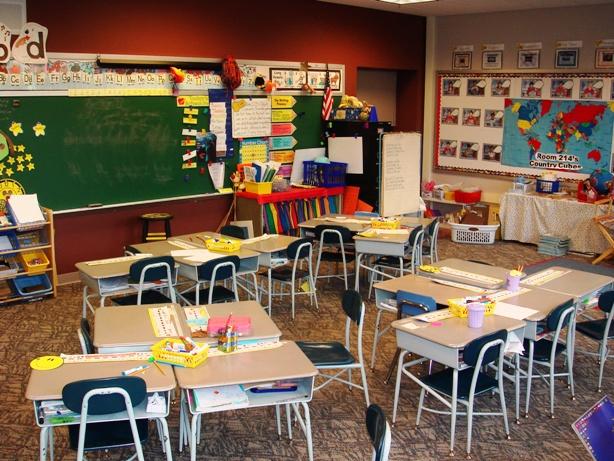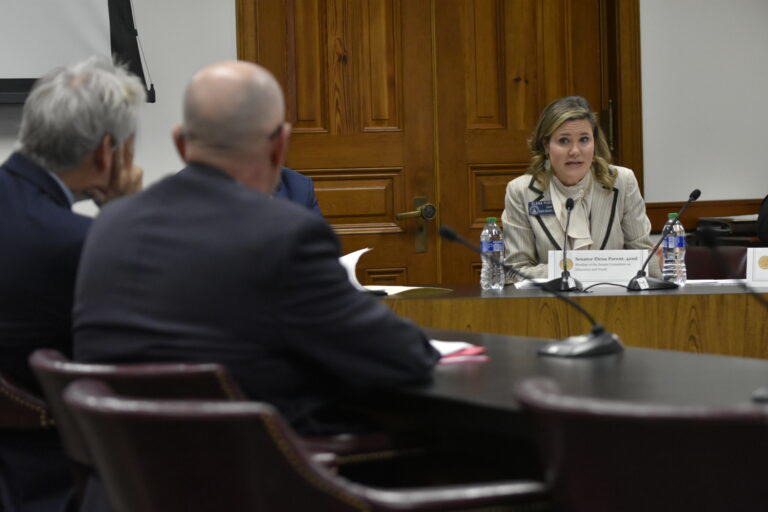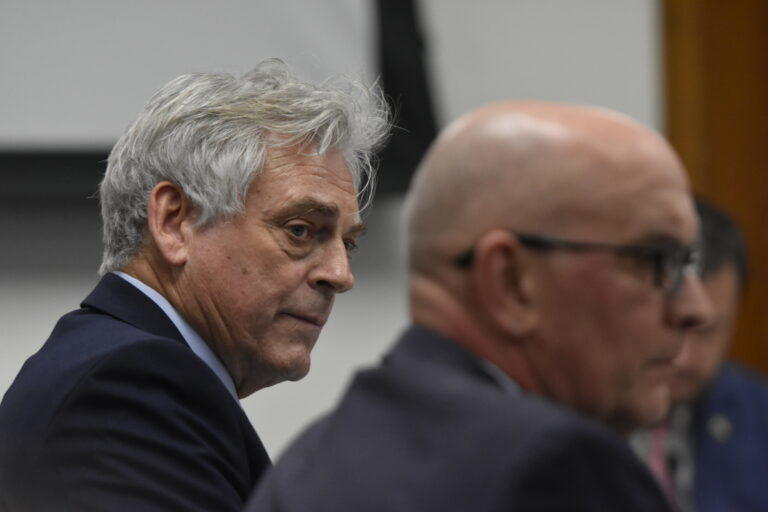
Caption
A watered-down “Don’t say Gay” bill aims to limit discussion on gender issues in Georgia classrooms.
Credit: Photo courtesy of capl@washjeff.edu

A watered-down “Don’t say Gay” bill aims to limit discussion on gender issues in Georgia classrooms.
A controversial bill dubbed Georgia’s version of “Don’t Say Gay” moved forward in a Senate committee Tuesday after three years of work and multiple failures to move, largely over Republican opposition to the inclusion of private schools.
The latest version of the bill applies differently to public and private schools.
If it becomes law, private schools will not be allowed to implement curriculum or instruction addressing “issues of gender identity, queer theory, gender ideology or gender transition” without getting written permission from a parent. Schools operated by a religious institution are exempt “to the extent that the requirements of this code section would be inconsistent with the religious tenets of the institutions.”
Public school boards would have until Jan. 1 to come up with policies regarding parental involvement on issues of gender identity and gender transition, including what to do when a child brings up questions about their gender identity and when to notify parents and refer to a professional.
The bill also prevents schools from accepting a change to a child’s records based on a gender transition or change in the child’s gender identity without written consent from each of the child’s parents.
The bill passed committee on a 6-3 party line vote during a committee meeting in which proponents were given 15 minutes to speak but opponents did not receive time to talk. Dozens of people attended the meeting.
“I just can’t help but point out for everyone who’s here that it does seem fundamentally unfair — it’s one thing, although I disapprove of it, to allow no testimony, it’s another to allow testimony from only one side,” said Atlanta Democratic Sen. Elena Parent. “And I think that’s really a black eye on moving ahead on this when there are this many people here.”

Sen. Elena Parent speaks with Sen. Carden Summers and attorney Jeff Fleghorn.
Gwinnett Republican Sen. Clint Dixon, the committee chair, said the public has commented on previous versions of the bill.
“We’ve had four public hearings that have gone for hours,” he said. “And we’ve vetted this bill very extensively. It’s changed quite a bit based on each public hearing, so the bill we’ve got in front of us is because of all the public comment that we’ve heard over the past year. So this bill, in my opinion, has been vetted very thoroughly.”
Jeff Fleghorn, an attorney who called himself a gay rights advocate opposed to gender ideology, said LGBTQ+ acceptance has increased because of the hard work of gay, lesbian and bisexual activists, but he said transgender people have attempted to “piggyback” off that struggle.
“SB 88 is necessary because the former gay rights movement has been hijacked by those pushing this dishonest gender ideology on children,” he said.
Online message boards demonstrate the harm of this hijacking, he added.
“There are more than 52,000 members of a Reddit detransitional group, mostly young lesbians and gay men, with gut-wrenching stories of regret,” he said. “Sterility, loss of sexual function, early onset osteoporosis and vaginal atrophy, as the transgender medical industry is laughing all the way to the bank.”
Speaking in the Capitol hallway after the vote, parents of transgender children and other advocates said they worry the bill will burden teachers and schools with more curriculum planning and harm the teacher-student relationship by potentially forcing teachers to out children who come to them with questions.
Human Rights Campaign Georgia Director Bentley Hudgins signed up to speak against the bill.
“Senate Bill 88 is a clear attempt by lawmakers to reframe curriculum censorship as parental involvement,” they said. “We know that Georgia schools are no place for curriculum censorship and for discrimination against trans and non-binary students. A few lawmakers see a political upside in attacking LGBTQ+ young people, but this is the fourth time that this legislation came into committee, and the only time that it passed out of this committee was when they shut out a dozen of the people who came here to speak against it.”
Opposition ran the ideological gamut. Taylor Hawkins, director of advocacy with the conservative Frontline Policy Action lobbying group, signed up to speak against the measure.
Speaking with the Recorder after the vote, Hawkins said Frontline supports the big idea but still has trouble with some of the specifics.
“The problem with SB 88 is it will in fact gut fundamental parental rights protections that Georgia has already put into law that we worked on in 2022,” he said. “And it actually provides more requirements for private schools than it does for public schools. So it’s a situation where we support the intent of the bill, but the effect on parental rights and the effect on private schools is something that Frontline cannot align with.”
Hawkins was optimistic the bill can be improved or snuffed out.

State Sen. Carden Summers (left) and attorney Jeff Fleghorn.
“There are many more steps in the process and Frontline will be working to either change or kill the bill,” he said.
Sponsor Sen. Carden Summers, a Cordele Republican, said the bill has been changed plenty already.
“We have worked on this bill now for roughly three years,” he said. “We have accepted and worked for changes with multiple groups. We took their concerns to heart and we did not say no to one group who came to us.”
If the bill is to become law, it will need to pass the full Senate. Feb 29 is the last day it can do so without unusual legislative maneuvering. It will then need a full House vote and Gov. Brian Kemp’s signature.
This story comes to GPB through a reporting partnership with Georgia Recorder.